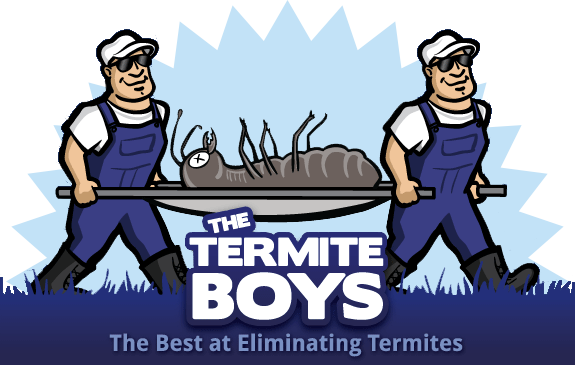They may be small, but termites pack a devastating punch for homeowners, especially in the understated elegance of Boston’s historic architecture. In this post, The Termite Boys delves into why homeowners in the Boston area should be more concerned about termites than ever before.
A Historic Haven or a Termite Buffet?
Boston’s rich history is more than just a backdrop; it’s a preferred menu for termites. The city’s abundance of colonial and Victorian-era homes might be the envy of architectural enthusiasts, but these beautiful wood structures are a termite’s paradise.
The Unique Charms of Boston’s Homes
From the bay windows of Back Bay to the porches of Beacon Hill, Boston is home to a myriad of architectural styles. Despite their historical significance, these structures often have wood components that, unfortunately, make them quite attractive to termites.
The Termite’s Point of View
Imagine you’re a termite, wandering through Boston. What do you see? An all-you-can-eat buffet. Wood in older homes may be untreated and may have lost its tight grain over time, making it even more appealing to termites.
The Tell-Tale Signs of a Termite Infestation
Termites are notoriously discreet, often leaving homeowners unaware of their presence until significant damage is done. Understanding the signs can make a life-changing difference for your home.
Uninvited Guests: The Colonization of Your Home
When termites find a quiet spot to call home, they begin to reproduce rapidly, creating colonies within the wooden infrastructure of your house. The building itself provides sustenance and protection, ensuring termites’ survival for years unnoticed.
Indicators You Should Always Watch For
Mud tubes along your foundation, discarded wings, and hollow sounds when tapping on wood are just a few signs of a termite presence. Early identification can save homeowners thousands of dollars in damage repair.
The Environmental Impact of Termite Infestations
Beyond the fiscal damage termites can inflict, there is an environmental toll that cannot be ignored. Building demolitions due to extreme termite damage lead to an influx of construction waste and, unfortunately, a loss of historical integrity.
Lifecycle and Population Expansion
Understanding the lifecycle of termites is crucial in appreciating the breadth of their potential impact. As colonies grow, so do their demands for wood, often leading to the devastation of structural elements of homes if left unchecked.
Sustainable Treatment Methods
Awareness of the lifecycle also paves the way for more environmentally friendly methods of dealing with termite infestations. Efficacious treatment plans that minimize collateral environmental damage are evolving, and the industry has made significant strides in recent years.
Protecting Your Boston Home from a Termite Onslaught
Beacon Hill or South End, termites don’t discriminate, and all areas of Greater Boston are under threat. Prevention is key, and understanding how to protect your home is the best defense against termites.
Conducting Regular Inspections
Regular inspections by a qualified professional can catch termites before they do significant damage. This is especially important in cities like Boston where termite control measures are not mandatory, leaving the onus on the homeowner to remain vigilant.
Building Practices and Termite Resistance
Modern construction incorporates termite-resistant materials and barriers during home building, providing a layer of defense against future infestations. These methods can be retrofitted onto older homes to enhance their protection.
A Community United Against Termites
Sometimes, a problem shared is a problem halved. In the case of termites, uniting with your local community and termite control experts can provide support, resources, and peace of mind.
Sharing Information and Resources
Community forums and local initiatives can be a source of valuable information on termite prevention and treatment. Sharing experiences and learning from others can be crucial in battling termite infestations.
The Role of Professionals
Experienced pest control professionals are invaluable allies in the war against termites. They can provide not only guidance and treatment but also comprehensive plans that involve the homeowner in the process, ensuring long-term vigilance.
Embracing an Educated Future
Ignorance is not bliss when it comes to termites. As more incidents of termite infestations are reported in the Boston area, homeowners must arm themselves with knowledge to safeguard their property.
Outreach and Education
Various educational and outreach programs are available to Boston homeowners, offering seminars and resources to learn the warning signs and steps for termite prevention.
The Power of Preparedness
Taking a proactive stance is critical. Homeowners should establish a plan for regular termite inspections and be ready to act swiftly if an infestation is detected. Swift, educated action can mean the difference between a minor nuisance and a major crisis.
As The Termite Boys conclude our exploration of termite risks in Greater Boston, it’s clear that proactive education and community engagement are vital tools in preventing and managing termite infestations. With a deep appreciation for history and a commitment to protecting our homes, we can together keep Boston termite-free and its architectural wonders intact.

